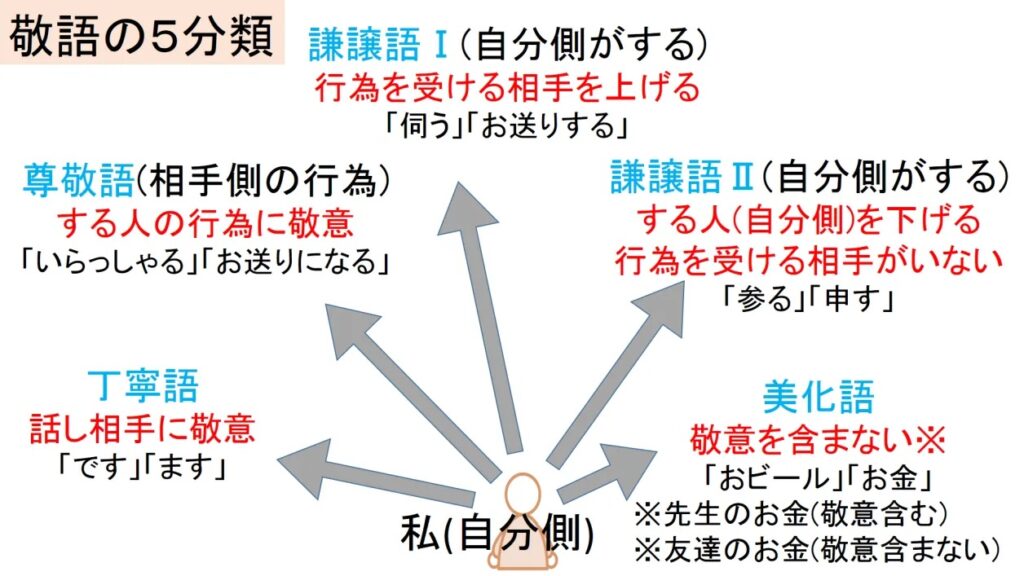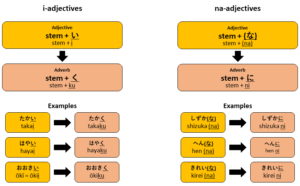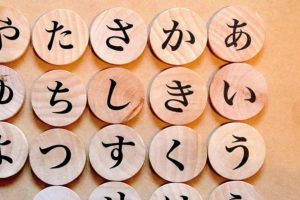
敬語は5種類に分けて考えることができます。
Keigo can be divided into 5 categories
Keigo can be divided into 5 categories
1) 尊敬語 : 「いらっしゃる・おっしゃる」型
Respect language
Respect language
相手側の動作などを言うときに、その動作をしている相手を 高くする。
Elevating the state of the other when referring to their actions of someone superior.
Elevating the state of the other when referring to their actions of someone superior.
<例>
いらっしゃる
めし上がる
お使いになる
読まれる
ご利用になる
お忙しい
2) 謙譲語I:「うかがう・申し上げる」型
Modest language I
Modest language I
自分側の動作などを言うときに、その動作の対象である相手を高くする。
Elevating the other when referring to the actions of yourself.
Elevating the other when referring to the actions of yourself.
<例>
うかがう
申し上げる
お目にかかる
さし上げる
ご案内する
お目にかかる
さし上げる
ご案内する
3) 謙譲語Ⅱ (丁重語) : 「まいる・申す」型
Modest language Ⅱ (Humble language)
Modest language Ⅱ (Humble language)
自分側の動作などを言うときに、話している相手に対して丁寧に言う。
Modest language Ⅱ(humble) is used in order to treat the other politely, when referring to the actions of yourself.
Modest language Ⅱ(humble) is used in order to treat the other politely, when referring to the actions of yourself.
<例>
まいる
申す
いたす
申す
いたす
4) 丁寧語: 「です・ます」 型
Polite language
Polite language
話している相手に対して、 表現全体を丁寧に言う。
Showing respect towards the person to whom you are referring by, incorporating a degree of formality into the entire expression.
Showing respect towards the person to whom you are referring by, incorporating a degree of formality into the entire expression.
<例>
です
ます
5) 美化語: 「お酒・お料理」 型
Beautification language
Beautification language
言葉や物事を美化して (きれいに) 言う。
Beautifying words or things with this form of speech.
Beautifying words or things with this form of speech.
<例>
お酒
お料理
Key:
There are various types of honorifics in Japanese. Honorifics are expressions that respect superiors and are used when you want to make a partner.
In addition, humble language is a humble expression used when you want to make a partner by lowering yourself.
And the polite word with “desu, masu” is an expression that is often used in everyday conversation and is used by anyone.
日本語にはさまざまな敬語があります。 敬語は、上司を尊重する表現であり、パートナーを作りたいときに使用されます。
また、謙虚な言葉は、自分を低くしてパートナーを作りたいときに使われる謙虚な表現です。
そして、「です、ます」という丁寧な言葉は、日常会話でよく使われ、誰もが使う表現です。

Adjectives and adverbs -形容詞と副詞 –
2020年11月4日
Adjectives and adverbs -形容詞と副詞 – All adjectives in the “dv” group always end with an (i). Without exception. These are


When is Mother’s Day in Japan?
2022年9月30日
Does your country have a Mother’s Day? Japan also has Mother’s Day. I vaguely remember Mother’s Day in May…and Father’s

日本のお正月ではどんなことをするの?
2022年9月26日
皆さんは1年の始まりをどんな風に過ごしていますか? 日本では、一般的に1月7日までを「お正月(osyougatsu)」と呼ばれていて、1月1日を「元旦(gantan)」、1月1日~3日までを「三が日(sanganichi)」と呼んでいます。 どの国でも1年が始まる日はお祝いムードに包まれますが、日本でも同じように新年をお祝いする習慣があります。 その多くが日本ならではの風習であるため、日本に訪れた外国籍の人からすると新鮮な体験ができることでしょう。 この記事では、そんな「日本のお正月ではどんなことをするの?」という疑問について解説していきたいと思います。 Contents1 日本で行われるお正月行事1.1 初日の出1.2 初詣1.3 おみくじ1.4 おせち料理1.5 年賀状1.6 お雑煮1.7 お年玉1.8 鏡餅2 まとめ 日本で行われるお正月行事 それでは、さっそく日本で行われるお正月行事をいくつか挙げていきましょう。 この時期に日本に滞在するならば、ぜひ積極的に日本のお正月を体験してみましょう。 初日の出





